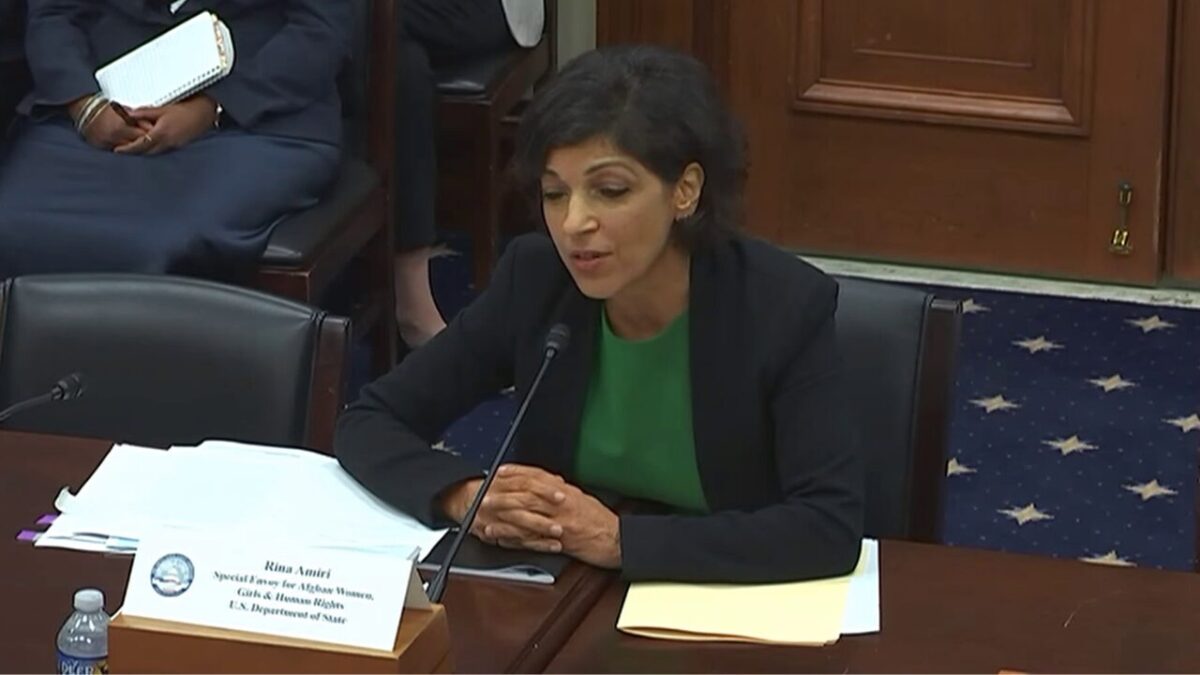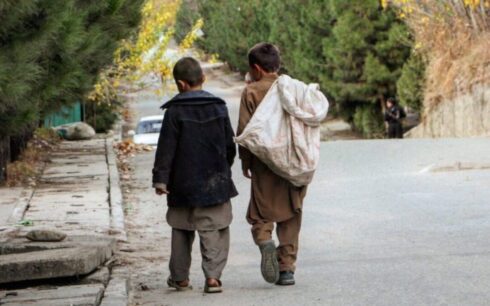In a testimony before the Congressional Human Rights Commission on Tuesday, Rina Amiri, the U.S. Special Envoy for Human Rights in Afghanistan, clarified that the United States has not recognized the Taliban and emphasized that normalization will not proceed as the Taliban desire until they meet their international obligations.
“The U.S. has not recognized the Taliban. We do not see normalization as moving forward in the way that the Taliban desire until the Taliban meet their international obligations, as well as the priorities that we have noted,” Amiri said in response to a question from Congressman Jim McGovern.
Amiri outlined the U.S. priorities for Afghanistan: “Our priorities in Afghanistan are making sure that Afghanistan does not once again become a sanctuary for terrorism, that the Afghans who seek to leave the country are able to do so, particularly our allies who are in the resettlement pipeline. We are looking to provide humanitarian assistance in the country in a way that is unhindered and that we can do it in a principled way, as we do globally.”
She also highlighted the U.S. efforts to secure the release of American detainees and stressed the importance of human rights. “Human rights, particularly the situation of women and girls, is at the heart of our policymaking, and it’s across all efforts,” she said.
Amiri stated that the U.S. has made it clear to the Taliban that improving the situation for women and human rights in general is essential for any progress toward normalization. “We’ve made it clear to the Taliban, to our allies, and to the global community repeatedly that until the Taliban significantly improve the situation for women’s rights and human rights in general, there is not going to be a movement in the direction they seek towards normalization,” she said.
In response to a question about the U.S. resettlement process, including the Priority 1, Priority 2, and Special Immigrant Visas (SIVs), and whether these processes are tailored more towards men, Amiri noted that 50 percent of those resettled are women.
“I work very closely with the CARE office, but I would turn to my CARE colleagues for the specificity I think that this type of conversation would require. I can note that this is a conversation that we have quite frequently, and they are quite concerned and recognize that Afghan women and girls are the most vulnerable populations that need relocation and resettlement. Right now, in terms of the numbers we’re looking at, 50 percent of those who have been resettled are women, and I believe that we have over 75,000 who have been resettled in the United States,” she said.





